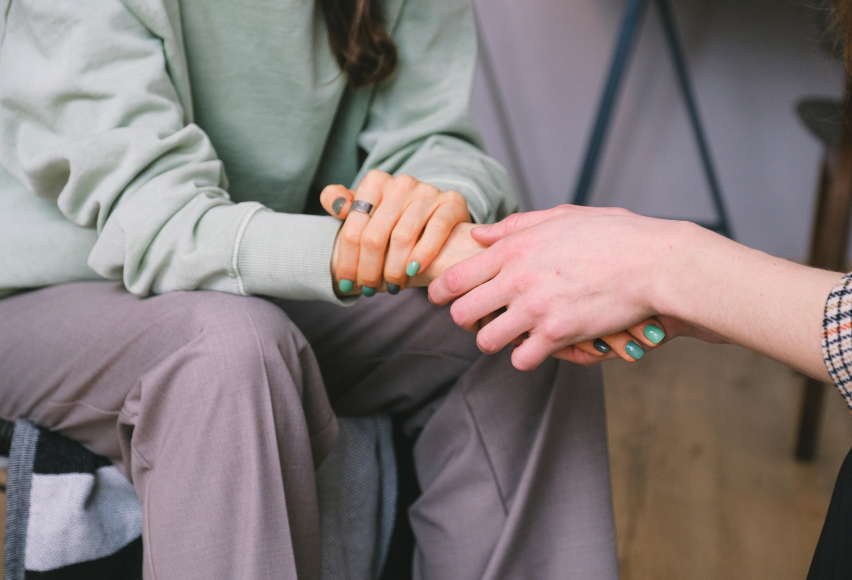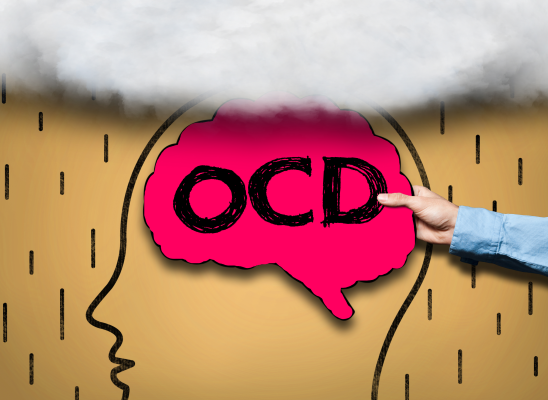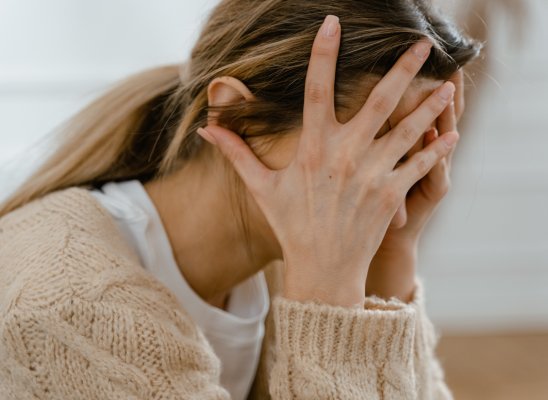
Online test
Find out the severity of your symptoms with this free online test
You’ve probably heard the saying, “It takes a village.” While not originally coined to describe living with OCD, it is certainly a concept that holds true.
Living with Obsessive-Compulsive Disorder (OCD) can be an overwhelming and isolating experience. The intrusive thoughts, compulsions, and resulting shame or fear of judgment can leave you suffering in silence. While avoiding others can feel protective, healthy connection is what you need.
It might surprise you that one of the most powerful tools in managing OCD is found in having a support system and healthy connections with others. A strong support system can positively impact treatment outcomes, help you maintain recovery, and even improve your quality of life. Just what does healthy support look like and why does it matter so much? How can you build a social network that feels healthy and safe? Read on to learn more.
Why Social Support Matters
While quite manageable, OCD is considered a chronic mental health condition, and it often requires long-term management. While evidence-based treatments like Exposure and Response Prevention (ERP) and sometimes medication create the foundation of treatment, support from others plays a major complementary role in the overall treatment picture.
Research tells us that having a strong support system is a key factor in mental health outcomes. For people living with OCD, studies have shown that perceived social support can help to:
- Reduce Isolation – Living with OCD can be an isolating experience. Having a support system and trusted friends can help reduce feelings of loneliness.
- Encourage Treatment Compliance – Trusted family and friends in your corner can help you stay motivated, offer encouragement, and offer a safe space to practice new skills.
- Stress Buster – Stress is a well-known trigger for OCD flare-ups. Having a circle of support can help buffer the effects of stress.
- Build Resilience – Having a support system reinforces the idea that you’re not alone in your journey. Knowing that you have support can be empowering especially during rough patches.
Having support doesn’t just “feel good”, it can actually help improve treatment outcomes and sustain them over time.
So just what makes for a strong support system?
Elements of a Strong OCD Support System
You might think that a support system has to be some big, complicated group of people. In fact, a support system doesn’t have to be big at all. What matters most is who you choose to have in that system and their capacity for consistency, understanding, and willingness to take this journey with you. That might look like supportive family members, trusted friends, your therapist, a support group or even an online community.
Family and Friends
Supportive family and friends are often at the heart of a support system. When family and friends are informed and compassionate, they can be powerful allies in recovery. Some ways they may be supportive can include:
- Providing encouragement to seek and stay in treatment
- Offering emotional support during difficult times
- Encouraging recovery
- Avoiding enabling behaviors (e.g., not participating in rituals)
- Learning about OCD
Education is key here. Loved ones and friends might not always understand a situation or may inadvertently reinforce or accommodate symptoms. Sometimes in their efforts to “help”, they may actually be enabling or reinforcing unwanted behaviors.
Helping them to understand OCD can help them support you in healthy ways. One way to help with this education is to invite them to a therapy session to talk about support and what that might look like. Having your therapist there to help explain can make the conversation much easier to have.
Your Trusted Treatment Team
You might not immediately think of your clinical team as part of your support system, but they are. Your treatment team provides your professional guidance and support.
Depending on your unique treatment needs, your treatment team might consist of:
- A therapist trained in Exposure and Response Prevention (ERP) therapy, the gold standard treatment for OCD, as well as other evidence -based interventions for OCD
- A psychiatrist if medication is part of the treatment plan
- Your Primary Care Provider (PCP) who may monitor your general health and collaborate with your other team members as needed.
A good treatment team not only provides clinical support but can also empower you to advocate for yourself and take ownership of your journey to recovery.
Peer Support Groups
There’s an old saying about walking a mile in someone’s shoes before you can understand their experience. Peer support groups bring together people in various stages of their healing journey, some who have walked that path and have much to share.
Support groups, whether in person or online, offer you a unique opportunity to talk with other people who “get it”. This connection can provide a sense of belonging and validation because they’ve been where you are. It’s a connection that even the most well-meaning friend or loved one may not be able to offer.
While the idea of sharing with strangers can feel intimidating, it brings huge benefits:
- Normalizes your experience (Others have had the same experience)
- Strategies and tips from others in recovery
- A safe space to talk about challenges without judgment
- A place to share successes too!
Online Forums and Communities
Online spaces have become increasingly popular and can be a great place to find connections too. In these online communities, many people find like-minded people and support while maintaining boundaries via the virtual space. These spaces can be a comfortable alternative to in-person support groups for those who find in-person interactions uncomfortable.
It is important to exercise caution when considering an online community. Not all of them are well-moderated or accurate in what’s posted. Choose platforms moderated by professionals or established advocacy groups when possible.
You Supporting You
So far, we’ve talked about the benefits and importance of external support. Equally important is your internal support. Yes, you are a vital part of your support system. You can support your sense of self-esteem and well-being by:
- Practice self-compassion – This means treating yourself kindly and giving yourself grace especially when setbacks happen
- Celebrate victories big and small
- Create a structure that supports your mental health such as practicing good sleep hygiene, establishing mindful routines, practicing good self-care
- Build resilience through activities like journaling or practicing gratitude
- Do things that bring you joy and a sense of confidence or accomplishment
Nurturing your own self-esteem and sense of worth is an important part of the healing journey and in building your support system too. Research has found a reciprocal link between self-esteem and positive relationships. Just as healthy relationships can boost self-esteem, improved self-esteem leads to better social relations.
Tips for Building Your Support Network
What your support system looks like will be unique to your preferences and needs. You may start with a few carefully chosen people and build from there. Or you may decide to join an online community first. Whatever your preferences, if you’re looking to build or improve your support system, there are steps you can take to get started:
Be Honest With Yourself – Be honest with others about what you need from them. In other words, how can they best support you. You’ll find that people often want to help, but they may not know how. It’s ok to let them know.
Educate Your Supporters – This step is especially important for family and friends who may not have much experience with OCD. Share trusted resources like books, podcasts, websites like StopOCD, or videos. Be open to any questions they may have.
Set Your Boundaries - Not everyone may be able to support you no matter how well-intentioned they may be. It’s ok to limit your exposure to people who are unsupportive or increase your feelings of guilt or shame.
Start Where You Are – You don’t have to open up to everyone all at once. In the beginning, you may only feel comfortable sharing with one trusted person Don’t feel pressured to open up to everyone at once. Sharing with just one trusted person which in itself can be a powerful first step. Take your time and expand your network as you feel ready.
Join A Support Group – A support group can give you a layer of comfort by being in a community of others who also deal with OCD. You can share as little or as much as you feel ready to share while gaining a sense of belonging and acceptance.
You Don’t Have to Do This Alone
OCD can feel like isolating but you don’t have to go it alone. A strong healthy support system can make the journey to recovery a little less lonely and a lot more hopeful. Whether your support comes from a parent, a friend, a therapist, or someone on the other side of a screen, having that connection matters.
Sometimes, making those connections is hard. Being vulnerable with someone else can be uncomfortable. If you find yourself struggling to make those connections, a therapist can help. A therapist who understands the realities of living with OCD can help you find healthy and empowering ways to start building that network of support so vital to healthy healing.
At StopOCD, we have a team of skilled therapists ready to help you get on the path to healing. And online therapy makes getting help easier than ever. Online therapy lets you address your OCD on your schedule and from the comfort of your own space. When you’re ready, our therapists are here with effective treatment options.
References
1. Palardy, V., El-Baalbaki, G., Fredette, C., Rizkallah, E., & Guay, S. (2018). Social Support and Symptom Severity Among Patients With Obsessive-Compulsive Disorder or Panic Disorder With Agoraphobia: A Systematic Review. Europe's journal of psychology, 14(1), 254–286. https://pmc.ncbi.nlm.nih.gov/articles/PMC5973527/
2. Harris, M. A., & Orth, U. (2020). The link between self-esteem and social relationships: A meta-analysis of longitudinal studies. Journal of Personality and Social Psychology, 119(6), 1459–1477. https://psycnet.apa.org/fulltext/2019-55803-001.html
3. Talk to people about your mental health problems. (2025, February 13). Retrieved from https://www.samhsa.gov/mental-health/what-is-mental-health/how-to-talk/people-with-mental-health-problems
Online test
Find out the severity of your symptoms with this free online test
Start your journey with StopOCD
Take control of your life and find freedom from OCD through professional therapy and evidence-based cognitive behavioral techniques.
Start Now



